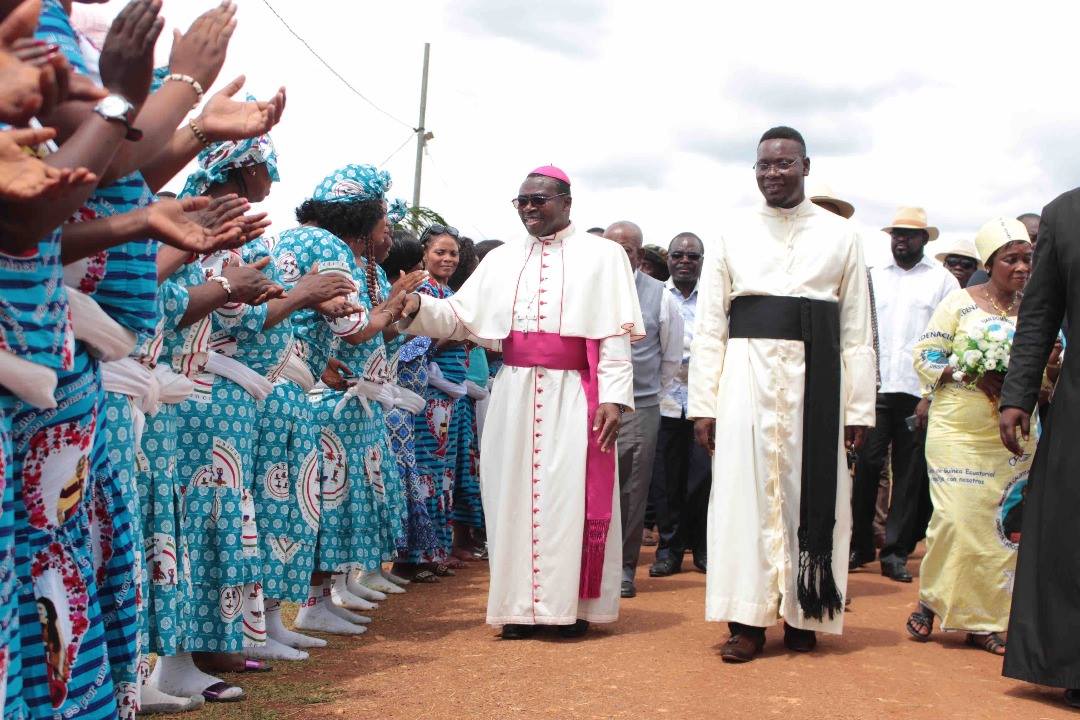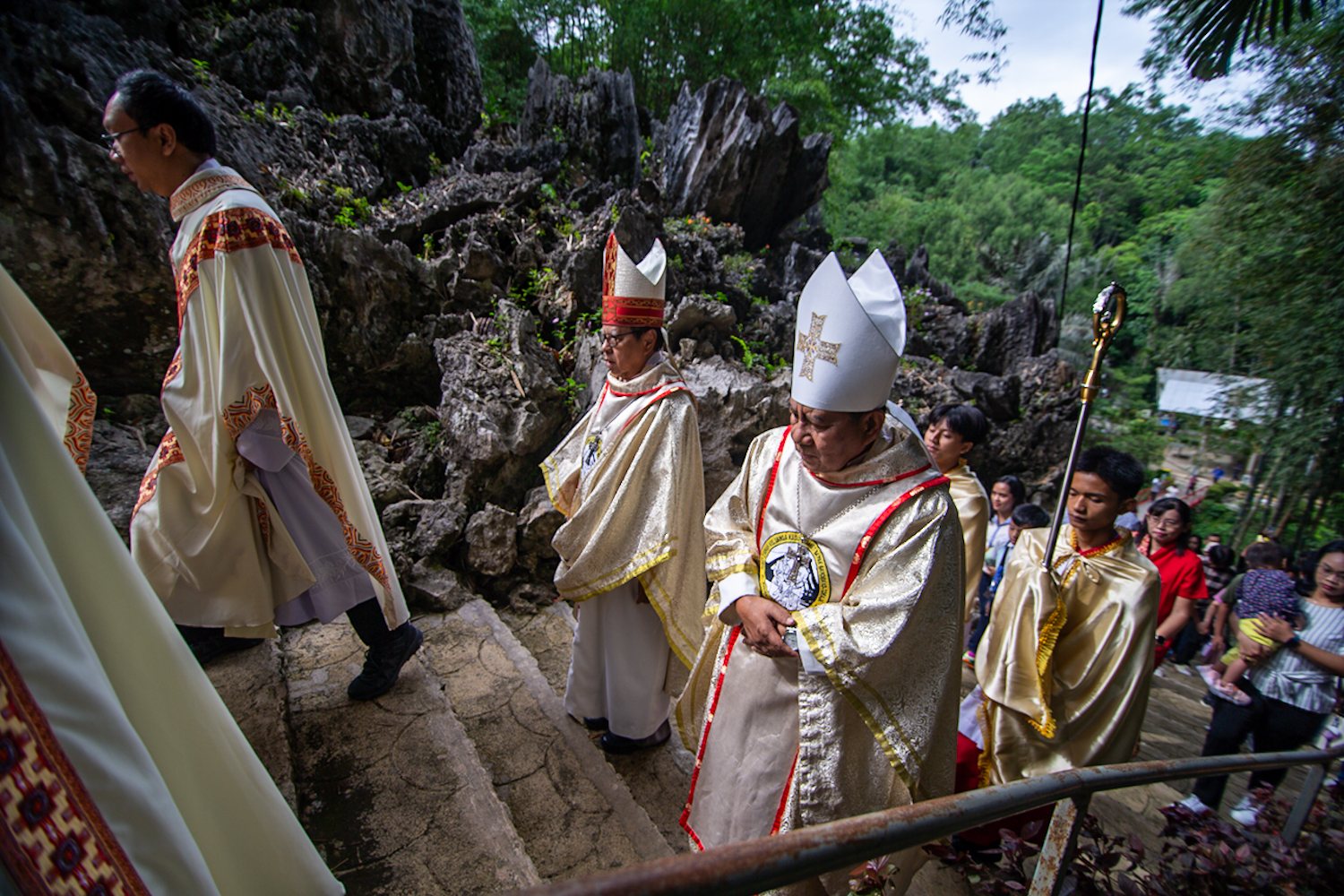The Beatification of Martyr José Si Esono and the Enduring Strength of Catechists
Joaquim Magalhães de Castro
The President of the Episcopal Conference of Equatorial Guinea, Juan Domingo-Beka Esono Ayang, Bishop of Mongomo, in an interview with Fides Agency, recalls that after almost a decade of intense persecution by the country’s authorities – from 1968 to 1979 – the Catholic Church lives today a new dynamic.
“From three dioceses with two bishops, we went to five dioceses with six bishops,” says the prelate. In fact, this traumatic experience was the true driving force of evangelization, with the Church remaining “present and active” despite all types of obstacles. Equatorial Guinea, located on the west coast of Africa, was, after becoming independent from Spain in 1968, a Marxist dictatorship for more than 11 years. The Catholic Church was persecuted, worship was banned and temples were converted into cocoa and coffee warehouses. The catechists were those who suffered the most, through reprisals and the most diverse forms of humiliation. Among them, José Si Esono stands out, whose beatification process is already underway, as the first step towards canonization “which is intended to be submitted” to the Congregation for the Causes of Saints.
“During our Ad Limina visit to the Holy See we had the opportunity to present the case of the catechist José Si Esono, highly venerated in Equatorial Guinea,” says Bishop Juan Domingo-Beka Esono Ayang. In addition to the venerated catechist, there is the case of a nun, Imelda Makole, co-founder of a local female congregation (“Missionaries Oblates of Mary Immaculate and Saint Joseph”, now “Missionaries of Mary Immaculate”), and also beatification processes of others catechists and lay people, currently underway. Which says a lot about the fundamental role of catechists in the exercise of pastoral ministry in that country. Since the first proclamation of the Gospel in Equatorial Guinea, catechists have been considered the “right hand” of priests, and are still “those responsible for base communities”.
The bishop of Ebibeyín, Miguel Ángel Nguema Bee, also evokes the impressive story of José Si Esono, the first catechist martyr in Equatorial Guinea, in the 1930s. Born in the small village of Ebansok, José heard about Christ for the first time in the coastal town of Bata, where he usually sold the coffee he produced on his land. In the local market, a Claretian missionary would approach him and teach him how to pray the Rosary. José realized that after that prayer with the priest, something had changed in his life. Upon returning to the village, he decided to share what he had learned with his fellow countrymen. And as they wanted to know more about this prayer, he told them about the European he had met in Bata, whom he would like to invite to his home.
“The catechist is not just the one who gives catechism or training with a view to preparing for the sacraments. He is, above all, the leader of the Christian community. Without catechists, there would be no faith.”
Dom Miguel Angel
And so it was. José sought out the missionary in Bata and informed him of his people’s interest in learning the Rosary. And, by the way, he wanted him to explain who this Mary was to whom they prayed… That was how the Claretian missionaries arrived in Ebansok. “There were no roads at the time,” explains Dom Miguel Angel. It was, therefore, a dangerous journey of 125 kilometers on foot through dense forest and in a territory with conflicting tribes. José not only managed to get all his people to accept the Gospel but also to accept the ‘white man’, until then considered hostile, as he was “the colonist who mistreated and oppressed”. Years after the start of the mission, Esono began to criticize his fellow countrymen for continuing to use amulets while praying to Jesus and Mary, asking them to give him these objects, as he wanted to burn them.
Outraged, the village chief not only refused the request but accused him of wanting to subvert tradition. “The chief no longer saw him as the catechist who had taught them to pray but rather as someone who intended to extirpate them from what their ancestors had left them,” explains Dom Miguel Angel. Accused of witchcraft, José Si Esono was burned alive at the stake, leaving, with his martyrdom, a testimony of unshakable faith. It was he, who, with his example, managed to ensure that evangelization penetrated such areas. Even today, catechists remain the fundamental link. “The catechist is not just the one who gives catechism or training with a view to preparing for the sacraments. He is, above all, the leader of the Christian community.
“Without catechists, there would be no faith,” explains Dom Miguel Angel. In the diocese in charge of this bishop, there are only 46 priests and it is difficult to serve the more than 347 existing chapels. Hence the importance of catechists, who continue the work of celebrating the Word on Sunday or encouraging prayer life within the community during the rest of the week. In Equatorial Guinea, the catechist’s activity is voluntary; for them, it is important to dedicate a large part of their life to God Our Lord.
As for vocations to the priesthood, there is no shortage of them; and the Bata Major Seminary is there to welcome them. From around forty seminarians, the number grew to ninety in just a few years. The facilities have therefore become too small and can no longer meet the needs of the growing number of candidates. Dom Miguel Angel launches the appeal: “We urgently need more spaces and facilities to be able to offer adequate training to future priests”.


 Follow
Follow


